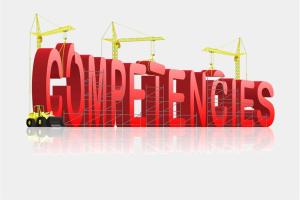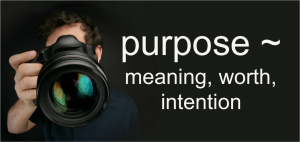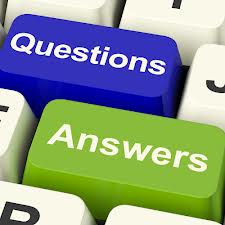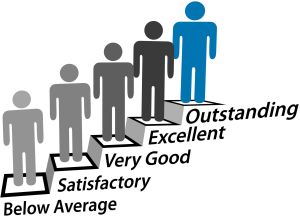This blog is written to aid both managers when recruiting and appraising staff and consultants in the recruitment industry, so that they can determine their own level of competence in what they do.
This is the 10th post in a series of twelve. For the links to previous competencies that I’ve already covered, please find them at the end.
10. Client Relationship
The definition of relationship in the dictionary is as follows: – ‘the way in which two or more people (or things) are connected, or the state of being connected’.
Customer Relationship Management (CRM) is a term that’s only been around in the mainstream during this century really, but it’s always been there. Building a relationship with a client takes time and effort, from both parties. It’s important that when contact is made that it is beneficial to both.
When training recruitment consultants, I see that too often they are either lazy or uncomprehending of the fact that they have to put effort into building the relationship with the client. Calling every month and asking “Have you got any vacancies?” is just not going to cut it!
They need to create a strategy that lasts at least 13 weeks, whereby they have specific activities that they pan to do with that client… and then carry them out. After the quarter, they can review their progress and plan the next quarter. Each time aiming to improve the relationship.
The consultant – client relationship has 6 stages: –
1) Contact
2) Acceptance
3) Trust
4) Commitment
5) Loyalty
6) Advocacy
What are you doing to move your clients towards number 6?
Purpose: – The purpose for a recruitment consultant is to establish rapport by demonstrating a clear understanding of the client’s changing business. Relate confidently with the client, whilst giving and receiving information on the solutions to be put in place.
1. Tell me about some clients that you have had working relationships with:
a) How do you define a working relationship?
b) What are the key stages when building a relationship?
c) What do you see as the benefits of longer term relationships with clients?
2. Describe a client that you have successfully developed a relationship with over time:
a) How did you start the process?
b) What specifically did you do to ensure that momentum was maintained?
c) What have you learnt about building client relationships from this?
3. Give an example of a client that you would like to develop a relationship with currently:
a) What has made you select this client?
b) How are you establishing their needs?
c) What specifically is your role in this process?
High level of competence shown: –
- Enhances the relationship through continually improving the levels of information and service.
- Appreciates the need to maintain the relationship in the longer term, (reliability, regular communication, keeping promises)
- Utilises the open relationship with the client to enable them to resolve manpower issues which are of value to their business
Each week I’m tackling a new competency and I will follow the same format of purpose, questions and three examples of what a high level of that competency would look like.
For the original post with a snapshot of all of the competencies I will be covering this summer, click here – The Key Competencies of a Recruitment Consultant.
- The Competencies of a Recruitment Consultant – Planning
- The Competencies of a Recruitment Consultant – Monitoring
- The Competencies of a Recruitment Consultant – Analysing
- The Competencies of a Recruitment Consultant – Sales opportunities
- The Competencies of a Recruitment Consultant – Meeting Goals
- The Competencies of a Recruitment Consultant – Building Profitability
- The Competencies of a Recruitment Consultant – Communication
- The Competencies of a Recruitment Consultant – Team Priorities
- The Competencies of a Recruitment Consultant – Development of others
Angela Cripps, Connemara UK





What does a recruiter typically have to do to get past stage 3?
Hi Mitch,
Two examples of such activities: –
– Service reviews that review a service level agreement (SLA) initially agreed at stage 2
– Providing management information
Both give the client the opportunity to see the capabilities of the consultant and are a great way of being able to ask for ‘Commitment’ to move up to level 4.
They trust you with their business, they know you do a good job, it’s all about convincing them to only use you.
Not every client will get to stage 4, but the objective is to keep working on it with that as an aim.
Hope this clarifies,
Angela
Thanks Angela.
Isn’t it difficult to display those capabilities all the while they’re probably only able to fill around 20-25% of the vacancies nay one client gives them?
I’m talking potential ‘chicken and egg’ conundrum here.
Hi Mitch,
If this were the case, then the objective would then be to identify why they are only filling 20 – 25% of job roles. If it’s because they are matching correctly, then they don’t deserve to get to Sgate 4. Commitment.
If it’s because they get the role at the same time as 2 or 3 other agencies, then the metrics that they would use on the reviews would be data such as: –
a) Length of time from job take to either CV submittal or direct interviews booked
b) Ratio of CVs to First Interviews
c) Ratio of First Interviews to Offers
d) Length of service of placements made
e) % credits etc.
If they can show that they are better than the other suppliers, then they can then ask for exclusivity with a time frame initially. It could be 1 hour to 1 month, but then they will be increasing their % fill rate and over a period of time can gain Stage 4. Commitment.